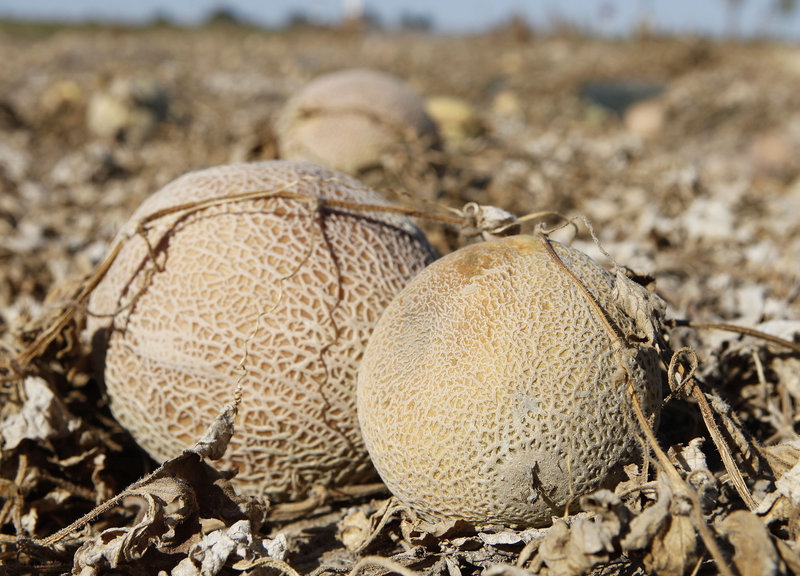WASHINGTON – The Food and Drug Administration on Friday proposed the most sweeping food safety rules in decades, requiring farmers and food companies to be more vigilant in the wake of deadly outbreaks in peanuts, cantaloupe and leafy greens.
The long-overdue regulations could cost businesses close to half a billion dollars a year to implement, but are expected to reduce the estimated 3,000 deaths a year from foodborne illness. Just since last summer, outbreaks of listeria in cheese and salmonella in peanut butter, mangoes and cantaloupe have been linked to more than 400 illnesses and as many as seven deaths, according to the federal Centers for Disease Control and Prevention. The actual number of those sickened is likely much higher.
The FDA’s proposed rules would require farmers to take new precautions against contamination, to include making sure workers’ hands are washed, irrigation water is clean, and that animals stay out of fields. Food manufacturers will have to submit food safety plans to the government to show they are keeping their operations clean.
Many responsible food companies and farmers are already following the steps that the FDA would now require them to take. But officials say the requirements could have saved lives and prevented illnesses in several of the outbreaks that hit the country in recent years.
In a 2011 outbreak of listeria in cantaloupe that claimed 33 lives, for example, FDA inspectors found pools of dirty water on the floor and old, dirty processing equipment at Jensen Farms in Colorado where the cantaloupes were grown. In a peanut butter outbreak this year linked to 42 salmonella illnesses, inspectors found samples of salmonella throughout Sunland Inc.’s peanut processing plant in New Mexico and multiple obvious safety problems, such as birds flying over uncovered trailers of peanuts and employees not washing their hands.
Under the new rules, companies would have to lay out plans for preventing those sorts of problems, monitor their own progress and explain to the FDA how they would correct them.
“The rules go very directly to preventing the types of outbreaks we have seen,” said Michael Taylor, FDA’s deputy commissioner for foods.
The FDA estimates the new rules could prevent almost 2 million illnesses annually, but it could be several years before the rules are actually preventing outbreaks. Taylor said it could take the agency another year to craft the rules after a four-month comment period, and farms would have at least two years to comply.
The new rules, which come exactly two years to the day President Barack Obama’s signed food safety legislation passed by Congress, were already delayed. The 2011 law required the agency to propose a first installment of the rules a year ago, but the Obama administration held them until after the election. Food safety advocates sued the administration to win their release.
The produce rule would mark the first time the FDA has had real authority to regulate food on farms. In an effort to stave off protests from farmers, the farm rules are tailored to apply only to certain fruits and vegetables that pose the greatest risk, like berries, melons, leafy greens and other foods that are usually eaten raw. A farm that produces green beans that will be canned and cooked, for example, would not be regulated.
Send questions/comments to the editors.



Success. Please wait for the page to reload. If the page does not reload within 5 seconds, please refresh the page.
Enter your email and password to access comments.
Hi, to comment on stories you must . This profile is in addition to your subscription and website login.
Already have a commenting profile? .
Invalid username/password.
Please check your email to confirm and complete your registration.
Only subscribers are eligible to post comments. Please subscribe or login first for digital access. Here’s why.
Use the form below to reset your password. When you've submitted your account email, we will send an email with a reset code.